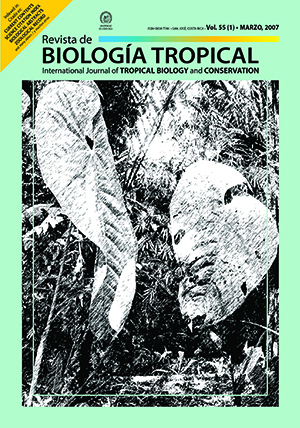Abstract
Bovine babesiosis, caused by Babesia bigemina, is a barrier for livestock devel-opment; it results in high economic loss to Mexican livestock. Control requires adequate antigens for diagnosis and vaccination programs. However, because of antigenic variation among Babesia strains, it is necessary to use antigens prepared from local strains. The purpose of the present study was to isolate a local field strain and to establish the in vitro culture of B. bigemina by the evaluation of the constituent’s concentration of culture media. Thirty engorged female Boophilus microplus were collected from cattle suffering clinical babesiosis (B. bigemina) in Yucatan state, Mexico. These ticks were sent to the laboratory for detection of Babesia sp. vermicules. Eggs were kept at 83-85 % humidity and 27 ºC until hatching. Larvae were transferred to an esplenectomized calf (B-1). The resulting nymphs were transferred to an esplenectomized calf (B-2). Twelve days later, B. bigemina (local strain) was detected in calf B-2 and its infected blood was frozen in liquid nitrogen to initiate the in vitro culture. The Microaerophilus Stationary Phase (MASP) in vitro culture method was used to reactivate the parasite. Three differ-ent concentrations of culture media (70, 60 and 50 %), serum (30, 40 and 50 %) and uninfected red blood cells (5, 10 and 15 %) were used in order to know the convenient concentrations to obtain the highest percentage of infected red blood cells (PEI). The cultured strain was used to prepare antigens for the Immunofluorescence Antibody Test (IFAT) and several concentrations of serum and conjugate were tested. Strain isolation was successful; 30 days were needed to obtain a PEI of 1.5 %. The isolated strain was frozen in liquid nitrogen and the parasites were reactivated with the in vitro culture MASP method. The concentration of culture media that produced the highest PEI (14 %) (p<0.05) was 30 % serum, 70 % M199 and 5 %. Uninfected Red Blood cells antigens were successfully used in the IFAT and the best dilutions to differentiate between positive and negative controls were serum 1:80 and conjugate 1:80. The isolated B. bigemina local strain requires particular conditions of in vitro culture by the MASP method to reach high numbers of infected red blood cells, needed to prepare and provide high quality antigens for serological diagnosis of B. bigemina.
##plugins.facebook.comentarios##

This work is licensed under a Creative Commons Attribution 4.0 International License.
Copyright (c) 2007 Revista de Biología Tropical






